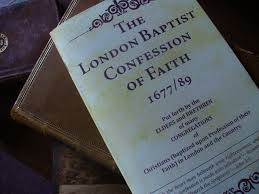I am writing this during what the church calendar calls Holy Week. That means that this Sunday is Easter. It is the day that the Church, by and large, remembers the resurrection of Jesus from the dead. If you were to visit our church this Lord’s Day you would find us singing some songs celebrating the triumph of Jesus from the dead and, no doubt, one of our pastors (I’ll be on vacation) preaching a message related to this triumph. In most regards, however, our service this Lord’s Day will be no different from any of the other 51 Lord’s Days of the year. In fact, we will make very little of this particular Easter Sunday because we see every Lord’s Day in this way. That is, every single Lord’s Day is equally a reminder of the risen Jesus. Our church believes that the Lord’s Day is not only a weekly celebration of the resurrection (and the descent of the Spirit), but that it is rooted in the fourth commandment as well (that command calls us to ‘remember’ the day and why we are to remember it). Therefore the weekly coming of the first day of the week is a blessed remembrance to us of several things.
Every week I am reminded that I have a Creator.
The Sabbath is rooted in the facts of Creation.
Every week I am reminded that I have a Lawgiver.
The Sabbath, though a great gift to man, is a moral obligation of the King of Creation.
Every week I am reminded of the weakness of my flesh.
The coming of the New Covenant did not rewrite the DNA of our humanity. We are weak creatures who need (and apparently who need to be told) to take a weekly rest.
Just as I am reminded of my rest in Jesus so I am reminded of the need for my body to rest from my labors.
Every week I am reminded that I am redeemed man.
Why do I delight to take a day to be in God’s house and among God’s people and to refresh myself in rest, worship, service, reflection, and fellowship? One reason: Jesus laid hold of me and changed my heart.
Every week I am reminded that I am part of a community.
I love the gathering of God’s people. I am glad when it is said, Let US go into the house of the Lord.
Every week I am reminded of the fading nature of this world and the incomparable glory of the world to come.
I need time away from the world and the things of the world (even those innocent, acceptable and necessary things) so that they do not constantly grip my heart and my attention. Not only can I do without them, one day I will forever do without them.
I am reminded every week of the promise of a better, eternal Sabbath rest for the people of God.
Every week I am reminded of the reality of the Holy Spirit in the life of the church and the beauty of what the church is.
It was on the first day of the week that the Spirit came with power on the day of Pentecost.
I am reminded every single week that Jesus rose from the dead. This is why the church has gathered every single Sunday for two thousand years. No event in human history is so celebrated. In a focused way when I make the decisions I do of what I will and won’t do, where I will and won’t go, what I will and won’t say, I am doing so not only under the shadow of the cross, but from the glorious light of the empty tomb.






